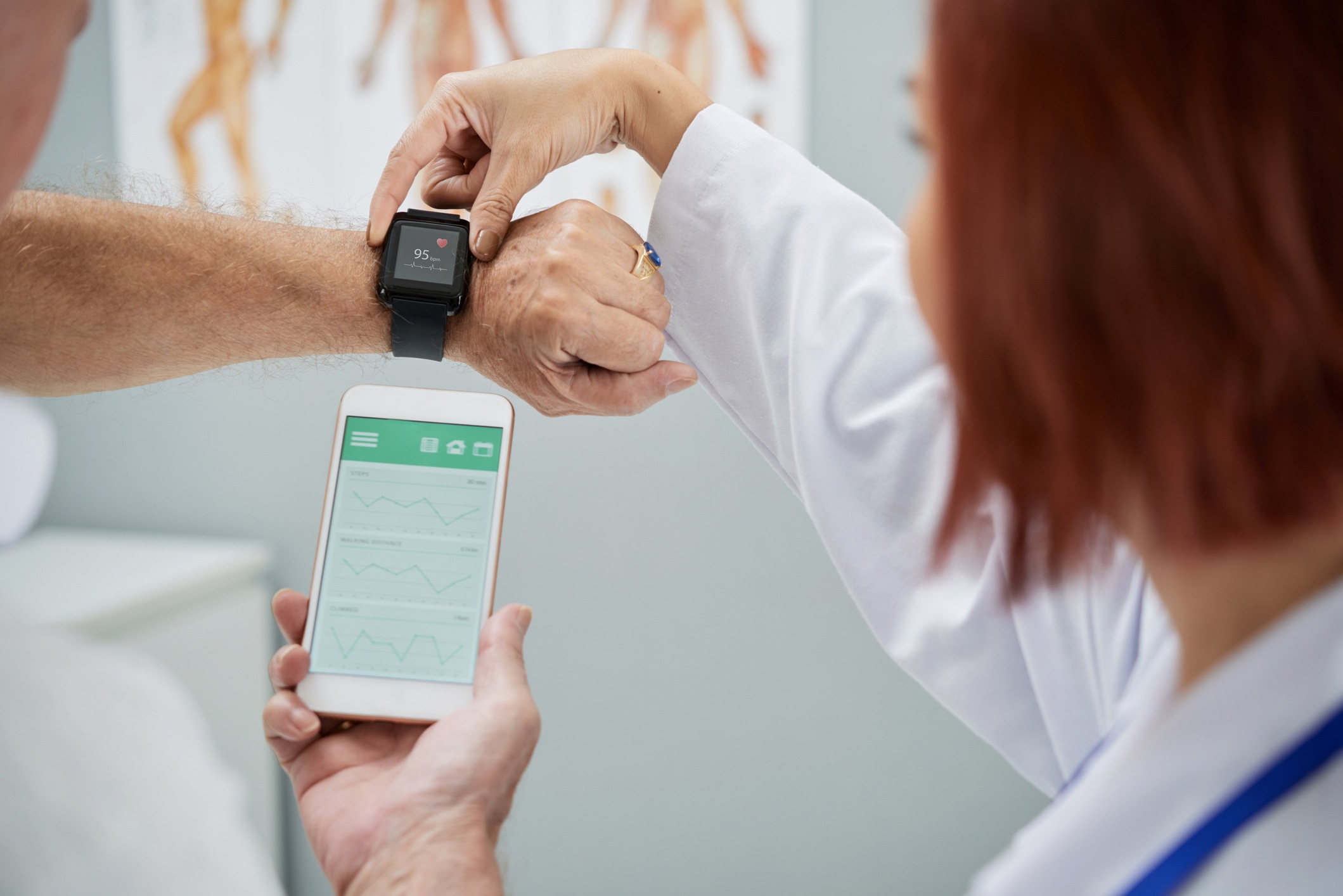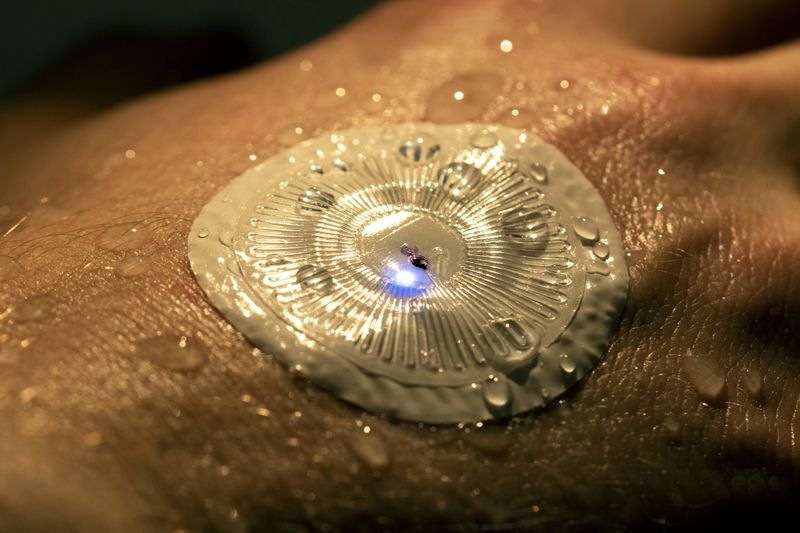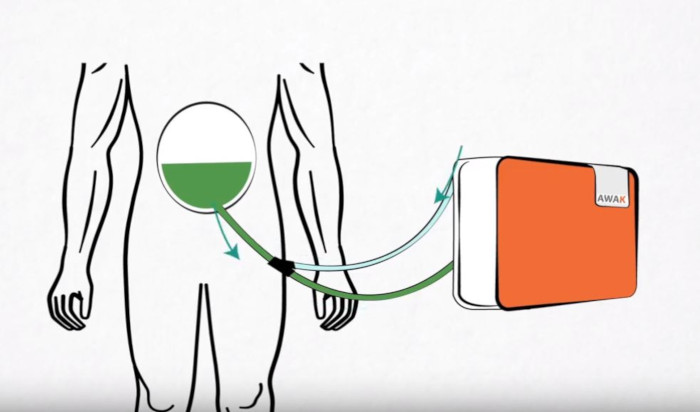
Wearable technologies offer a convenient means of monitoring many physiological features, presenting a multitude of medical solutions. Not only are these devices easy for the consumer to use, but they offer real-time data for physicians to analyze as well. From the Apple Watch’s EKG capabilities to new continuous glucose monitoring systems, wearable medical technologies have a wide range of potential applications in healthcare. Below, DocWire News has compiled five of the top innovations in wearable technologies this year plus a few new use cases for the Apple Watch.
First AI Medical Monitoring Wearable Approved by FDA for Home Use
Current Health’s artificial intelligence (AI) wearable device that measures multiple vital signs has recently received FDA-clearance for patients to use at home. In February, the Edinburgh, Scotland-based company received clearance for the AI-enabled device in monitoring patients while in the hospital, but this recent approval means it can now be used between doctor visits at home too.

Walking Data from Wearables Predicting Alzheimer’s Disease
One area of impairment in patients with Alzheimer’s disease is walking mechanics, or gait. Gait speed, symmetry, and stride length are typically reduced in patients with the disease, and their walking speed is much more variable. This can be detected via clinical assessment, with the physician observing the patient walking for a certain distance or duration. Alternatively, patients can be monitored through portable equipment. Sensors within smartphones, watches, and other wearables provide accurate data regarding the patient’s gait, offering a way to continuously monitor one’s walking habits. This information could be enhanced even further with contact sensors in a shoe or sock that provide pressure readings.
Read the full article
[do_widget id=mashup_multiwidget-31]
Wearable Sweat-Sensor Informs Athletes of Water and Electrolyte Loss
A group of researchers have recently developed a waterproof, bandage-like sweat sensor that tells the wearer when to replenish electrolytes and fluids. This innovative patch collects and analyzes athlete’s perspiration as they exercise in any environment – even swimming.
 Described in Science Advances, the patch contains tiny pores on it’s underside that allow the sweat to penetrate the device. Each of these holes contains its own sweat analysis technology, each testing various metrics to analyze if the wearer needs hydration or electrolytes.
Described in Science Advances, the patch contains tiny pores on it’s underside that allow the sweat to penetrate the device. Each of these holes contains its own sweat analysis technology, each testing various metrics to analyze if the wearer needs hydration or electrolytes.
Wearable Device Precisely Detects Cancer Cells in Blood
University of Michigan researchers have recently created a wearable device that can continuously collect and examine circulating tumor cells (CTCs) in the blood. These cancer cells are typically obtained via blood samples to provide a biomarker for treatment, but this wrist-worn prototype could potentially screen patients’ blood for a few hours to obtain only the CTCs of interest. These findings were published recently in a Nature Communications paper.
World’s First Wearable Peritoneal Dialysis Device Receives FDA Breakthrough Status
 AWAK Technologies, a Singapore-based medical technology company, recently received FDA Breakthrough Device designation for their wearable and portable dialysis device. Called the AWAK Peritoneal Dialysis device, or AWAK PD, the technology uses AWAK’s patented sorbent technology and offers a convenient means of dialysis for renal disease patients.
AWAK Technologies, a Singapore-based medical technology company, recently received FDA Breakthrough Device designation for their wearable and portable dialysis device. Called the AWAK Peritoneal Dialysis device, or AWAK PD, the technology uses AWAK’s patented sorbent technology and offers a convenient means of dialysis for renal disease patients.
Bonus Coverage, two new Apple Watch Use Cases
Livongo Working With Apple Watch and Others to Improve Disease Management
Livongo, a digital health startup that focuses on chronic disease management, recently announced that it will be integrated into wearables like the Apple Watch to provide health reminders to consumers. The company has previously worked to improve the quality of life in employees at Microsoft and Amazon with chronic conditions like diabetes. Moving into the smartwatch industry, Livongo is now aiming to give users personalized “Health Nudges” through notifications that promote health-conscious decisions.
With this system in place, a Livongo user with diabetes may receive alerts reminding them to measure their blood sugar in the morning before breakfast, eat low-starch vegetables before lunch, or to avoid drinking a sugary beverage.
Researchers Use AI and Wearable Sensor to Detect Heart Disease
Researchers have recently developed an artificial intelligence (AI) classifier that can detect a specific cardiovascular disease using a wearable wrist biosensor. The condition, hypertrophic cardiomyopathy, can cause serious complications and is commonly unrecognized in the clinical setting. By proposing a diagnostic approach using a machine learning and a wearable sensor, these researchers have potentially developed a noninvasive and widely available tool to identify the disease. Their work was published in npj Digital Medicine on June 24.







 © 2025 Mashup Media, LLC, a Formedics Property. All Rights Reserved.
© 2025 Mashup Media, LLC, a Formedics Property. All Rights Reserved.